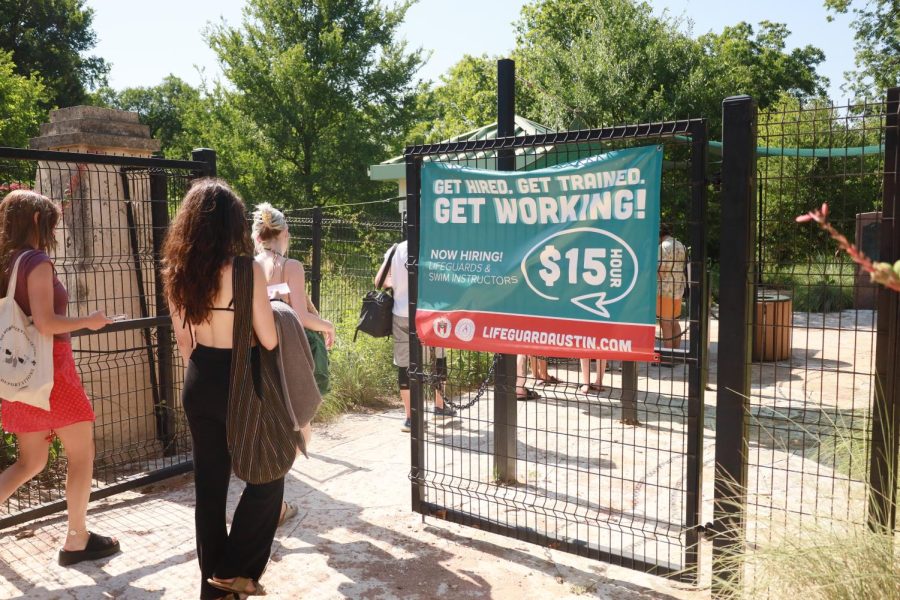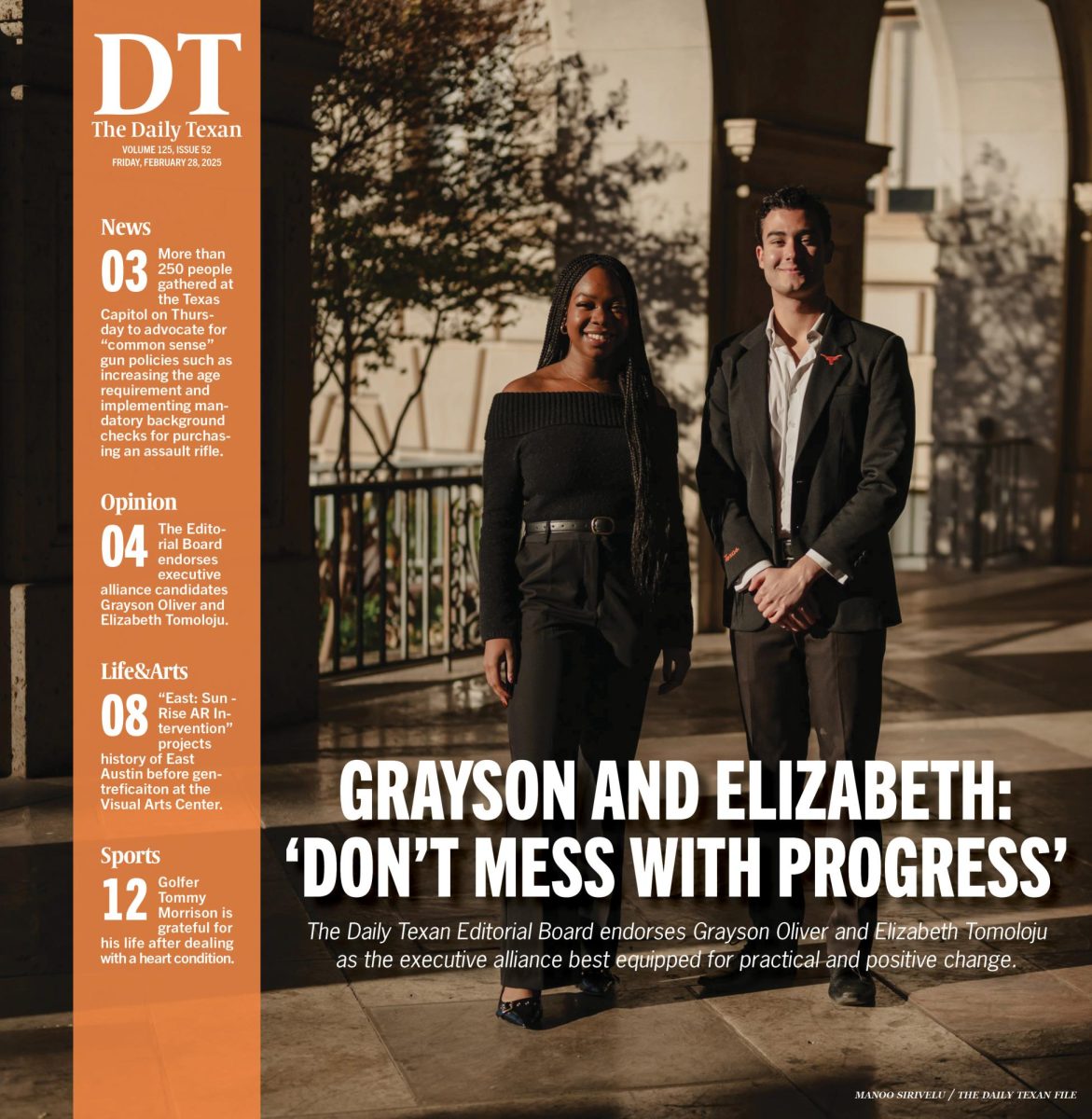Over half of Austin pools closed due to lifeguard shortages, as some advocate for higher wages for city employees
Patrons walk through the gates at the Barton Springs Pool at Zilker Park on June 5, 2022. Austin Public pools have been closed or operating with limited hours due to a lifeguard labor shortage.
June 9, 2022
Editor’s note: This article first appeared in the June 7, 2022 flipbook.
As temperatures rise to triple digits this week, many Austinites who turn to public pools to cool off may find them closed or operating with limited hours due to a lifeguard labor shortage.
Fifteen of Austin’s 34 public pools are open as of Monday due to the city’s lifeguard shortage. The city has almost 350 lifeguards, but needs 750 to fully operate all city pools, said Aaron Levine, aquatics supervisor for the Austin Parks and Recreation Department.
Some lifeguards and city leaders are pushing for increased lifeguard wages. Over 600 people have signed a petition urging the city to increase lifeguard pay to $22 an hour, and the cause has gained support from Austin City Council members Vanessa Fuentes and José Vela. Fuentes will introduce an increased wage proposal next week.
“With less than half of all pools in Austin currently open, a substantial and competitive wage increase is needed to close this gap,” Fuentes said in an email. “This increase would provide a more equitable baseline for city employees and ensure all Austinites can fully enjoy our pools this summer.”
As an incentive for new lifeguard hires, the city is offering up to $1250 in bonuses to recruits and current lifeguards. On May 19, The Austin City Council waived the $20 lifeguard course registration fee to make the unpaid 40-hour training more accessible.
“(The shortage is) part of a larger economic condition that we’re in,” Levine said. “We were able to increase our hourly rate to $16 to $19 an hour, which is really more than the surrounding cities and other lifeguard jobs that you can get. We’ve stayed competitive there.”
Before the wage increase, Austin lifeguards’ starting wage was $15. Some lifeguards, like Barton Springs lifeguard Scott Cobb, say the wage increase and bonuses offered are still not enough given the stressful nature of the work.
“Everything that we pay for has increased in expense for us, except our wages have not kept up with that,” said Cobb, who has been lifeguarding for over a decade. “People are able to get other, less stressful jobs, in food or retail that don’t require them to be responsible for saving other people’’s lives.”
Cobb and Emery Henry, a pool facility manager, said the labor shortage may be attributed to lifeguards working holidays with no extra pay, their wages not matching the increasing cost of living and unpaid training.
“I’m very hopeful that the city will see that in order to permanently end the lifeguard shortage and ensure that it doesn’t reoccur next spring, that they (need to) raise the living wage for all city employees to $22 an hour,” Cobb said. “This crisis in the aquatics industry, particularly in Austin, is a moment for everyone to take a step back and look at the job of lifeguarding and how it is perceived by Austin, the City Council, the aquatic management (and) the public who use these pools.”
Henry said lifeguards are under more stress as demand increases amidst limited open pools and low staff. He said public pools are places that provide relief from the heat and water safety education to the community.
“We really do have a wonderful system of pools; in particular, (free) neighborhood pools for the general public,” Henry said. “But a lot of these have fallen into a bit of disuse. A big thing (that) affects the pools is not having enough people to staff them … they don’t get maintained as well, and then when they’re not maintained, it becomes a real hurdle to open them back up.”












